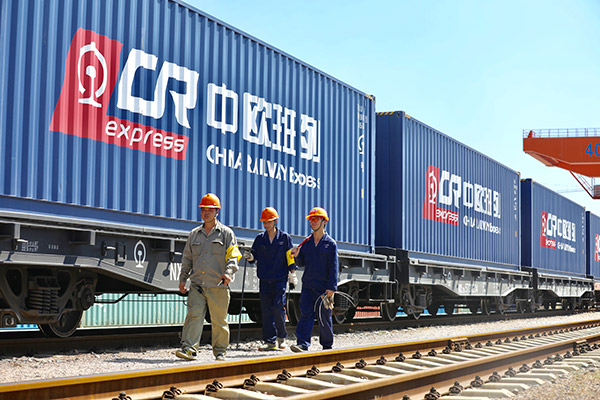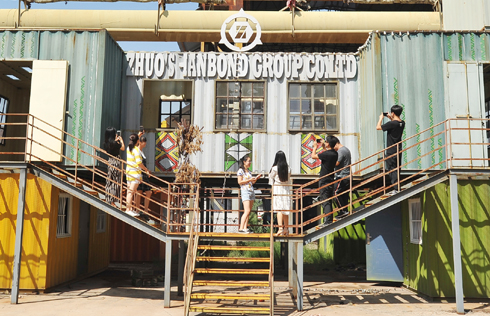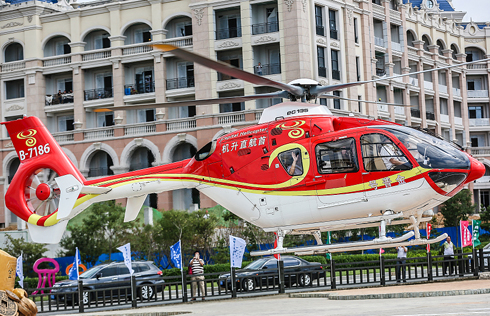Rail industry reform getting back on track
 |
|
Workers walk along a Europe-bound freight train on Aug 24 in Yiwu, East China's Zhejiang province. [Photo/China Daily by Zhu Xingxin] |
Shakeup at CRC's non-transport businesses due by first quarter of next year
China Railway Corp, the country's railway operator, aims to complete corporate system reform of its non-transportation businesses in the first quarter of 2018, said a source at one of these subsidiaries on Thursday.
This will be a part of CRC's reform to restore its earning ability by further optimizing its resources and reducing the number of unprofitable businesses.
The reform of CRC, one of the world's largest companies by both assets and employee numbers, will take place in three stages, starting at its non-transportation businesses, then at its 18 regional railway bureaus, and finally at its headquarters, according to the source.
A total of 17 subsidiaries, including China Railway Investment Corp, China Academy of Railway Sciences and People's Railway Daily that do not directly run transportation-related businesses will be reformed first, Caixin magazine reported.
What comes next will be the introduction of the corporate operational mode at its 18 railway bureaus across the country, as well as its three specialized transportation operators, China Railway Container Transport Co Ltd, China Railway Special Cargo Services Co Ltd and China Railway Express Co Ltd, the report said.
CRC is currently drafting detailed plans and plans to start the reform at its other subsidiaries before 2018, the report said. The aim is to achieve the absolute separation of government functions from companies, and such a proposal is awaiting approval from the State Council and the Ministry of Finance, according to the report.
Lu Dongfu, general manager of CRC, said last month that 2017 is the beginning of corporate system reform in the railway sector, and the following year it will focus on deepening the reform.
CRC was the main part of the now defunct Ministry of Railways. It now manages China's 124,000-kilometer-long railway system including more than 20,000 km of track for the high-speed railway network.
The group has reportedly started talks with major companies from the private sector including Alibaba Group Holding, Tencent Holdings Ltd and SF Express Co to further diversify its business categories and deepen mixed-ownership reform.
"The result of the first two steps will be seen clearly early next year," said Li Jin, chief researcher at the China Enterprise Research Institute in Beijing. "The most straightforward action is that the railway bureaus may have to remove the word 'bureau' from their name and replace it with a corporate name."
Zhao Jian, a professor of railway management at Beijing Jiaotong University, said the biggest hurdle facing CRC's reform would be to separate the country's railway network.
"China's 18 railway bureaus could be consolidated into three railway corporations in the northern, central and southern regions," said Zhao. "The three corporations could be in charge of their own region and could have independence in asset management. They must compete with each other to stimulate new growth points."
CRC saw its total debt swell to 4.72 trillion yuan ($708.5 billion) in the first quarter in 2017, up 14 percent year-on-year.
It generated 224.5 billion yuan in revenue between January and March, up 11.16 percent year-on-year. Of this, freight transport generated 77.4 billion yuan in operating revenue, up 19.41 percent year-on-year, the first uptick since 2013, while passenger transport services made 76 billion yuan in revenue, up 11.37 percent.



















